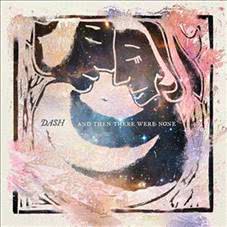In their debut EP, And Then There Were None, Melbournian quartet Dash have fashioned a quaint folk sound representative of the familial ties which bind these two pairs of sibling-musicians.
A confrontational intimacy characterises this band’s first release, which is painful in its earnestness. However perseverance on the part of the listener does pay off after a closer listen.
Gaelic-Celtic mysticism colours the EP’s first single “The World Behind”. Built on the somber finger-picking of accompanying banjo, the ethereal yet grounded vocals of Sarah-Rose McIvor swell with the gradual addition of marching drums and melodious piano.
Warm bluesy electric guitar and walking bass lines accent the otherwise lethargic tempo of “Dig”. Lyrically introspective, the song feeds off the call-and-response of both guitar and banjo.
“Beware” somewhat lifts the meandering course of the EP, with a sense of urgency being propelled throughout the ditty with rolling drums and slide guitar.
However it is with slight bafflement that the listener stumbles across “Tap Dance”.
Opening in the confessional Sarah McLachlan realms of the coffeehouse ballad, the song finally conjures some growl and bite in volatile grungy guitar runs and crashing cymbals.
All in all, there is not much to go by in And Then There Were None.
Despite reviving a minimalist roots-folk sound of endearing communality, an album of defined concept and theme is necessary to further substantiate the underlying essence of the intriguing ensemble Dash.




































